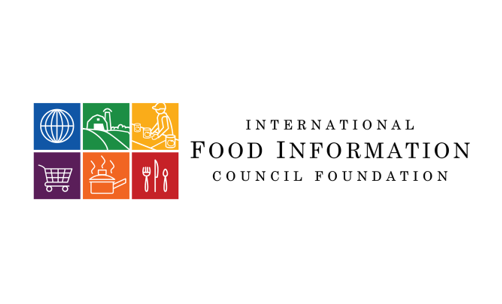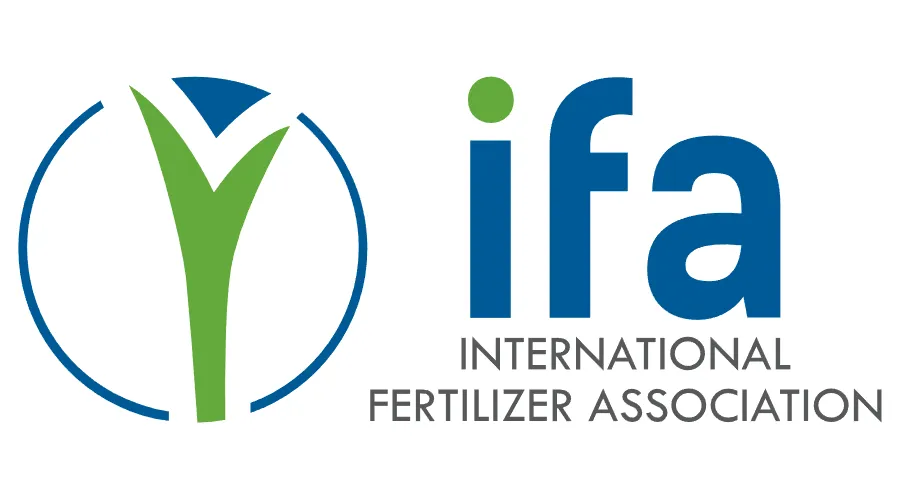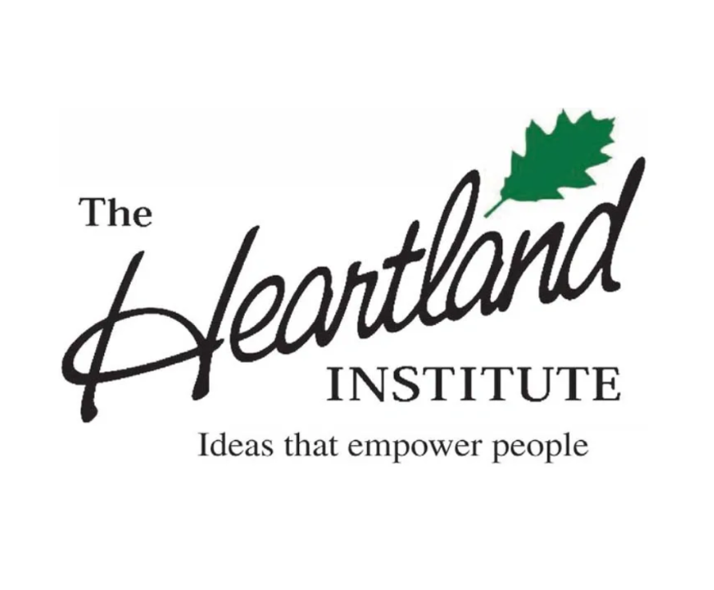Background
The International Food Information Council (IFIC) describes itself as an “educational organization focused on nutrition, food safety and agriculture.”1“International Food Information Council,” LinkedIn. Accessed November 10, 2020. Archived .pdf on file at DeSmog. The IFIC Foundation, the group’s nonprofit arm incorporated in 1991, states its mission as “effectively communicating science-based information on health, nutrition and food safety for the public good.”2“About,” International Food Information Council (IFIC) Foundation. Archived September 15, 2020. Archived .pdf on file at DeSmog.
According to investigative research group US Right To Know (USRTK), IFIC is a food and agrichemical trade group that, along with the foundation, “conduct[s] research and training programs, produce marketing materials and coordinate other industry groups to communicate industry spin about food safety and nutrition. Messaging includes promoting and defending sugar, processed foods, artificial sweeteners, food additives, pesticides and genetically engineered foods.”3“IFIC: How Big Food Spins Bad News,” US Right to Know, February 24, 2020. Archived November 10, 2020. Archive.fo URL: https://archive.fo/LvBqi
IFIC members include major food and drink producers such as PepsiCO and General Mills, and its operations have been supported by similar multinational food and drink companies including Coca-Cola, Hershey, McDonalds, as well as agricultural and chemical giant Monsanto (now Bayer).4“Membership,” International Food Information Council. Archived November 10, 2020. Archive.fo URL: https://archive.fo/RLzus
FoodInsight.org is an “information hub created and curated by nutrition and food safety experts at the International Food Information Council (IFIC)”.5“About,” Food Insight. Archived November 10, 2020. Archive.fo URL: https://archive.fo/ZN8vE
Stance on Climate Change
In 2020, Megan Meyer, Director of Science Communications at IFIC, wrote, “on an almost daily basis, we get new indications that our climate is becoming more precarious, from unprecedented wildfires around the world to the increasing incidence and severity of hurricanes, to the accelerating rate of polar ice loss.”6Megan Meyer. “Intuitive Eating and the “Un-Diet”; Sustainability (Finally!) Takes Shape; New Food Tech Gathers Momentum,” GlobeNewswire, January 6, 2020. Archived November 10, 2020. Archive.fo URL: https://archive.fo/5sEq6
IFIC tweeted in October 2019 that farmers “aren’t just slowing climate change. They’re reversing it by practicing regenerative agriculture” and linked to an article on the group’s website analyzing whether regenerative agriculture is the future of farming.7“#Farmers aren’t just slowing climate change. They’re reversing it by practicing regenerative #agriculture – bit.ly/2nZJN49,” Tweet by @FoodInsight, October 9, 2019. Retrieved from Twitter.com. Archived .png on file at DeSmog.
In 2019, IFIC released the results of a food and health survey which found that 22% of those polled had heard of regenerative agriculture and 55% said they had not but were interested in learning more.8Jeff Gelski. “Consumers show interest in regenerative agriculture,” World Grain, May 23, 2019. Archived November 10, 2020. Archive.fo URL: https://archive.fo/ev6ZT
Another consumer survey by the IFIC published in April 2020 on climate change and food production, discusses consumer attitudes towards climate and pesticides. One of the questions asked consumers to “rank the top three practices that you believe would most reduce food production’s impact on climate change.” The highest ranking answer was reducing greenhouse gas emissions, followed second by reducing pesticide use.9“Climate Change and Food Production: How Consumers View Agricultural Practices, Food Processing and Food Packaging in the Context of Climate Change Concerns,” International Food Information Council, 2020. Archived November 10, 2020. Archived .pdf on file at DeSmog.
The survey also showed many consumers “look to ‘natural,’ ‘organic,’ and ‘locally produced’ labels to shape perceptions of a product’s impact on the climate.”10“Consumer Survey: Climate Change and Food Production,” Food Insight, April 22, 2020. Archived November 10, 2020. Archive.fo URL: https://archive.fo/UezrD
“These food labels were ranked highest for conveying a positive impact on climate change, with each ranking in the top three for over four in ten (42%) survey takers. Twenty-nine percent said that a ‘Non-GMO’ label conveyed a positive climate change impact, while just 8% said the same of a ‘Bioengineered’ label.”11“Consumer Survey: Climate Change and Food Production,” Food Insight, April 22, 2020. Archived November 10, 2020. Archive.fo URL: https://archive.fo/UezrD
“And while labeling is clearly important for many, nearly three out of ten (28%) said that none of the label options presented conveyed a positive impact on the climate.”12“Consumer Survey: Climate Change and Food Production,” Food Insight, April 22, 2020. Archived November 10, 2020. Archive.fo URL: https://archive.fo/UezrD
Professor Tom Hoban of North Carolina State University told the Center for Media and Democracy in 1999 that the way IFIC designed its surveys was “loaded with language designed to bias the answers”.13Karen Charman. “The Professor Who Can Read Your Mind,” PR Watch, Volume 6, No. 4 Fourth Quarter 1999. Archive.fo URL: https://archive.fo/JkYZC
Read more: Regenerative Agriculture – Criticisms and Concerns
In a post on the group’s website about the future of food, Elizabeth Held, director at the White House Writers Group, argued that the benefits of precision agriculture can be huge: “Precision agriculture technology allows farmers to reduce inputs, like fertilizer and pesticides. That reduction both saves farmers money and also contributes to environmental conservation.”14Elizabeth Held. “Future of Food, Part IV: A Farmer with a Vision,” Food Insight, May 31, 2016. Archived November 10, 2020. Archive.fo URL: https://archive.fo/mwUxZ
Read more: Digital and Precision Agriculture – Criticisms and Concerns
Role in Pesticides Controversy
In 2011, IFIC was a large presence at the American Dietetic Association’s annual conference, hosting a number of events that Food Safety News reporter Michele Simon described as “corporate-funded, pro-pesticide spin”.15Michele Simon. “Pesticides are good for you,” Food Safety News, October 17, 2011. Archived November 10, 2020. Archive.fo URL: https://archive.fo/Sqc1v
In August 2016, IFIC tweeted that without pesticides “yields would greatly reduce”16“Without crop protection like #pesticides, yields would greatly reduce – http://bit.ly/2asCUBu #ag #agtech,” Tweet from user @FoodInsight, August 7, 2016. Retrieved from Twitter.com. Archived .png on file at DeSmog. and linked to a post on its website by Elizabeth Held, director at the White House Writers Group, about a study commissioned by COPA-COGECA. It says that pesticide bans and restrictions “harm the environment”.17Elizabeth Held. “What Happens When You Stop Using Crop Protection,” Food Insight, August 2, 2016. Archived November 10, 2020. Archive.fo URL: https://archive.fo/AXVqY
The study and post made a number of other claims, including that without crop protection, costs for growing certain crops would increase and thus “that means higher food costs for all of us”. It also argues that a ban on neonicotinoid pesticides in Europe has led to a fall in oilseed rape sowing, “which has a negative environmetal impact.”18Elizabeth Held. “What Happens When You Stop Using Crop Protection,” Food Insight, August 2, 2016. Archived November 10, 2020. Archive.fo URL: https://archive.fo/AXVqY
In 2016, a blog post, titled “Cutting Through the Clutter on Glyphosate” by IFIC Director of External and Member Communications, Jennifer Martin, argued that the International Agency for Research on Cancer’s determinations about the carcinogenic pesticide glyphosate, had been “based on flawed and discredited science” by some experts.19Jennifer Martin. “Cutting through the Clutter on Glyphosate,” Food Insight, January 14, 2016. Archived November 10, 2020. Archive.fo URL: https://archive.fo/8DORw
Industry watchdog US Right to Know (USRTK) fact-checked the claims and found that IFIC had relied on industry sources. USRTK also wrote that agriculture and chemical giant Monsanto, who were also the producers of glyphosate-based product Roundup, had identified IFIC as “one of the ‘industry partners’ that could help defend glyphosate from cancer concerns.”20Stacey Malkan. “Glyphosate spin check: tracking claims about the most widely used herbicide,” US Right to Know, April 26, 2019. Archived November 10, 2020. Archive.fo URL: https://archive.fo/ohJ1Vm
Glyphosate is the world’s most widely used weed killer which the International Agency for Research on Cancer said in 2015 was “probably carcinogenic to humans” but was re-approved for use by the EU in 2017.21“Glyphosate,” Pesticide Action Network. Archived November 10, 2020. Archive.fo URL: https://archive.fo/AparD In January 2020, US Environmental Protection Agency (EPA) released a statement that said it had concluded that “there are no risks of concern to human health when glyphosate is used according to the label and that it is not a carcinogen.”22“EPA Finalises Glyphosate Mitigation,” US Environmental Protection Agency, January 30, 2020. Archived November 10, 2020. Archive.fo URL: https://archive.fo/iyvPB
Lobbying
IFIC reportedly spent over $22 million in the five-year period from 2013-2018 on lobbying,23“IFIC: How Big Food Spins Bad News,” US Right to Know, February 24, 2020. Archived November 10, 2020. Archive.fo URL: https://archive.fo/LvBqi while IFIC Foundation spent over $5 million in those five years, according to tax forms filed with the IRS.24“International Food Information Council Foundation,” Charity Navigator. Archived November 10, 2020. Archive.fo URL: https://archive.fo/GhWOY
IFIC’s Foundation website says it does not engage in lobbying: “We do not lobby or further any political, partisan, or corporate interest”. But it says it sends “educational materials” to policymakers usually during a public comment period or through opportunities with its partners. It also sends its research to federal government press offices and organises conferences to bring together “different stakeholders and policymakers”.25“About,” International Food Information Council (IFIC) Foundation. Archived September 15, 2020. Archived .pdf on file at DeSmog.
In a 2017 report, sub-titled “A guide to food industry front groups,” the Center for Food Safety described IFIC as “being extremely aggressive with the media” and evaluated that “most of the ‘information’ IFIC promotes parrots industry talking points”.26“Best Public Relations that Money Can Buy – A Guide to Food Industry Front Groups,” Center for Food Safety, May 2013. Archived November 10, 2020. Archived .pdf at DeSmog.
Funding
IFIC does not declare its funding sources. A recently deleted page on IFIC’s Foundation’s website says it receives funding from companies that support the Foundation’s mission, individual contributions, contributions from other foundations and associations (including IFIC) and grants from government agencies.27“FAQs,” International Food Information Council Foundation. Archived August 7, 2020. Archive.fo URL: https://archive.fo/wbQZj
Affiliations
IFIC’s partners include the US Department of Agriculture, World Health Organization, and UN Food and Agriculture Organization of the United Nations.28“About,” International Food Information Council (IFIC) Foundation. Archived September 15, 2020. Archived .pdf on file at DeSmog.
The group lists its “Partners and Supporters” on a now-deleted page on its website:29“Partners and Supporters,” International Food Information Council Foundation. Archived August 8, 2020. Archive.fo URL: https://archive.fo/mWnGH
- Abbott Nutrition
- Ajinomoto Health & Nutrition North America, Inc.
- Atkins Nutritionals, Inc.
- Barilla Group
- Cargill, Incorporated
- The Coca-Cola Company
- Compass Group
- Corteva Agriscience
- Danone North America PBC
- DuPont Nutrition
- Ferrero USA
- General Mills, Inc.
- Heartland Food Products Group
- The Hershey Company
- Kerry
- Mars, Incorporated
- McDonald’s
- Mondelēz International
- PepsiCo
- Red Bull North America
- Zoetis
Other Resources
Resources
- 1“International Food Information Council,” LinkedIn. Accessed November 10, 2020. Archived .pdf on file at DeSmog.
- 2“About,” International Food Information Council (IFIC) Foundation. Archived September 15, 2020. Archived .pdf on file at DeSmog.
- 3“IFIC: How Big Food Spins Bad News,” US Right to Know, February 24, 2020. Archived November 10, 2020. Archive.fo URL: https://archive.fo/LvBqi
- 4“Membership,” International Food Information Council. Archived November 10, 2020. Archive.fo URL: https://archive.fo/RLzus
- 5
- 6Megan Meyer. “Intuitive Eating and the “Un-Diet”; Sustainability (Finally!) Takes Shape; New Food Tech Gathers Momentum,” GlobeNewswire, January 6, 2020. Archived November 10, 2020. Archive.fo URL: https://archive.fo/5sEq6
- 7“#Farmers aren’t just slowing climate change. They’re reversing it by practicing regenerative #agriculture – bit.ly/2nZJN49,” Tweet by @FoodInsight, October 9, 2019. Retrieved from Twitter.com. Archived .png on file at DeSmog.
- 8Jeff Gelski. “Consumers show interest in regenerative agriculture,” World Grain, May 23, 2019. Archived November 10, 2020. Archive.fo URL: https://archive.fo/ev6ZT
- 9“Climate Change and Food Production: How Consumers View Agricultural Practices, Food Processing and Food Packaging in the Context of Climate Change Concerns,” International Food Information Council, 2020. Archived November 10, 2020. Archived .pdf on file at DeSmog.
- 10“Consumer Survey: Climate Change and Food Production,” Food Insight, April 22, 2020. Archived November 10, 2020. Archive.fo URL: https://archive.fo/UezrD
- 11“Consumer Survey: Climate Change and Food Production,” Food Insight, April 22, 2020. Archived November 10, 2020. Archive.fo URL: https://archive.fo/UezrD
- 12“Consumer Survey: Climate Change and Food Production,” Food Insight, April 22, 2020. Archived November 10, 2020. Archive.fo URL: https://archive.fo/UezrD
- 13Karen Charman. “The Professor Who Can Read Your Mind,” PR Watch, Volume 6, No. 4 Fourth Quarter 1999. Archive.fo URL: https://archive.fo/JkYZC
- 14Elizabeth Held. “Future of Food, Part IV: A Farmer with a Vision,” Food Insight, May 31, 2016. Archived November 10, 2020. Archive.fo URL: https://archive.fo/mwUxZ
- 15Michele Simon. “Pesticides are good for you,” Food Safety News, October 17, 2011. Archived November 10, 2020. Archive.fo URL: https://archive.fo/Sqc1v
- 16“Without crop protection like #pesticides, yields would greatly reduce – http://bit.ly/2asCUBu #ag #agtech,” Tweet from user @FoodInsight, August 7, 2016. Retrieved from Twitter.com. Archived .png on file at DeSmog.
- 17Elizabeth Held. “What Happens When You Stop Using Crop Protection,” Food Insight, August 2, 2016. Archived November 10, 2020. Archive.fo URL: https://archive.fo/AXVqY
- 18Elizabeth Held. “What Happens When You Stop Using Crop Protection,” Food Insight, August 2, 2016. Archived November 10, 2020. Archive.fo URL: https://archive.fo/AXVqY
- 19Jennifer Martin. “Cutting through the Clutter on Glyphosate,” Food Insight, January 14, 2016. Archived November 10, 2020. Archive.fo URL: https://archive.fo/8DORw
- 20Stacey Malkan. “Glyphosate spin check: tracking claims about the most widely used herbicide,” US Right to Know, April 26, 2019. Archived November 10, 2020. Archive.fo URL: https://archive.fo/ohJ1Vm
- 21“Glyphosate,” Pesticide Action Network. Archived November 10, 2020. Archive.fo URL: https://archive.fo/AparD
- 22“EPA Finalises Glyphosate Mitigation,” US Environmental Protection Agency, January 30, 2020. Archived November 10, 2020. Archive.fo URL: https://archive.fo/iyvPB
- 23“IFIC: How Big Food Spins Bad News,” US Right to Know, February 24, 2020. Archived November 10, 2020. Archive.fo URL: https://archive.fo/LvBqi
- 24“International Food Information Council Foundation,” Charity Navigator. Archived November 10, 2020. Archive.fo URL: https://archive.fo/GhWOY
- 25“About,” International Food Information Council (IFIC) Foundation. Archived September 15, 2020. Archived .pdf on file at DeSmog.
- 26“Best Public Relations that Money Can Buy – A Guide to Food Industry Front Groups,” Center for Food Safety, May 2013. Archived November 10, 2020. Archived .pdf at DeSmog.
- 27“FAQs,” International Food Information Council Foundation. Archived August 7, 2020. Archive.fo URL: https://archive.fo/wbQZj
- 28“About,” International Food Information Council (IFIC) Foundation. Archived September 15, 2020. Archived .pdf on file at DeSmog.
- 29“Partners and Supporters,” International Food Information Council Foundation. Archived August 8, 2020. Archive.fo URL: https://archive.fo/mWnGH






